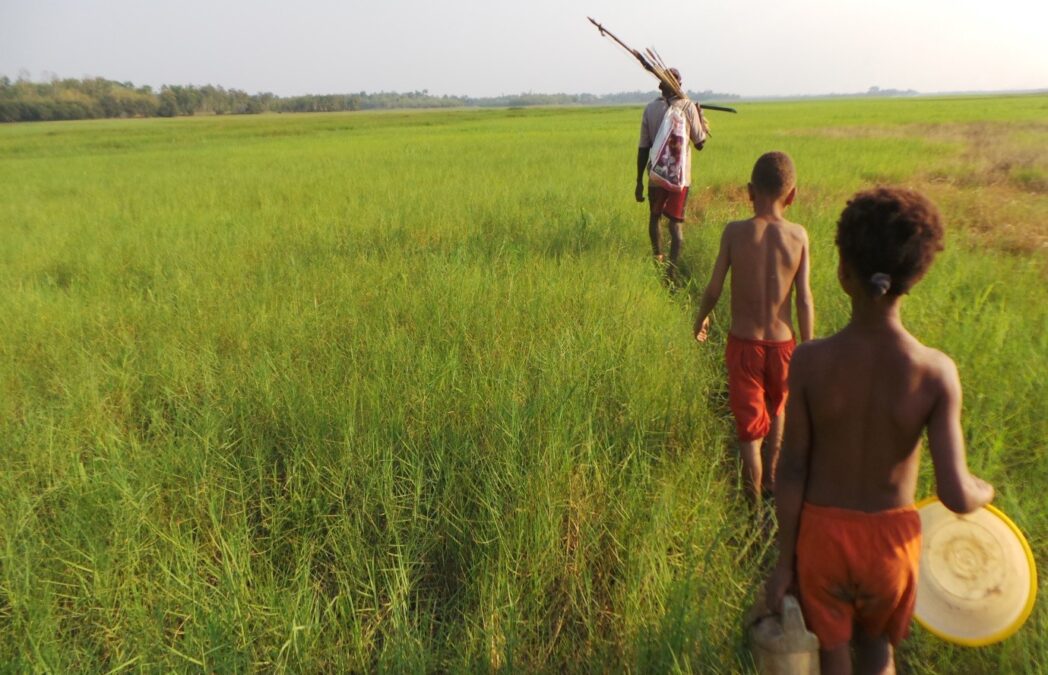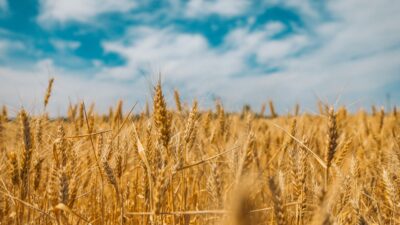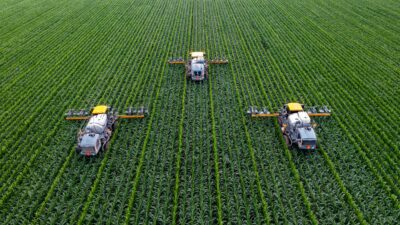
Food security starts with food sovereignty
As recently as 10 years ago, the Indigenous people of West Papua, Indonesia, maintained a traditional diet produced through hunting, fishing and gathering. Now these sustainable and nutritious foods are being replaced with processed and imported foods such as rice, instant noodles, and canned meats.
Why has the population switched to a poorer quality diet?
Palm oil.
In the last decade, I have conducted extensive ethnographic fieldwork and study in Indonesia, the world’s top palm oil producing country. Part of my work involved documenting how monocrop encroachments are undermining the nutritional health of Indigenous peoples and other rural communities. In Indonesia, and other Southeast Asian nations, biodiverse forests are increasingly being converted to industrial plantations, for products like palm oil.
These developments are driven by goals of increasing food production for national consumption and maximising overseas food exports. But on the ground, they have given rise to soaring rates of malnutrition, stunting, and wasting.
Global food insecurity has seen an upward acceleration since 2015, following decades of steady decline. The UN SDG goal of Zero Hunger is now at a critical juncture, as global experts express growing concern about how to feed the world.
In the Global South, the imperative to produce more food for more people has prompted a slate of large-scale land acquisitions for agricultural development. These “land grabs,” often implemented without the free, prior, or informed consent of local communities, violate the United Nations Declaration of the Rights of Indigenous Peoples.
Food is life in the broadest sense
Nutritional transformations not only badly affect the physical health of the Papuan communities with whom I have been working. They also undermine the cultural, spiritual, and cosmological meanings and values that people associate with forest-derived foods, together with their traditionally revered procuration and preparation. As I learned from my Papuan companions, forest resources are more than just food because they derive from plants and animals with whom these communities entertain relations of kinship, through shared descent from ancestral spirits.
Plants and animals grow to support their human kin by providing them with food and other resources. In return, humans offer respect and perform rituals as they encounter, hunt, gather, and consume kindred plants and animals in the forest. These exchanges reaffirm the Marind people’s ancestral relationships and reciprocal duties of care with, and towards, kindred plants and animals, and endow forest foods with their nourishing qualities.

Food is part of a cultural life cycle
Many Papuan communities with whom I conduct research lament the impacts of palm oil plantation developments on their cherished relations to the feeding realm of the forest. Women, for instance, mourn the decimation of sago groves where they had once celebrated their role as mothers in the company of a plant whose fertile flesh and fluids provide Marind children with nourishing sustenance. Many villagers decry the fact that they had forgotten the taste of forest foods, along with the myths and stories of the species they once hunted, fished, and foraged. Marinds’ plant and animal kin, too, are said to go hungry because of oil palm’s arrival. Robbed of their water, nutrients, and symbiotes, species that once thrived in the company of humans wilt and starve.
Marind thus conceive of and experience hunger as a multispecies phenomenon – one that is distributed across humans, plants, and animals whose existences are made possible through relations of mutual nourishment, rather than one-way extraction.
The disappearance of forest foods and the arrival of processed foods also marks the introduction of the unknown and unfamiliar into Marind culture. Imported canned pork, for instance, might contain the same nutritional content as hunted cassowaries – but villagers in rural Papua often suggest it tastes dry and bland because it “does not taste like our land.” Food is more than something that can be measured purely in terms of quantity and calories. Instead, food becomes nourishing by virtue of who it is produced by, from what lands, through what practices, and to whose benefit. Food is shaped by local cultural values, ecological practices, and societal norms that need to be acknowledged and accommodated in food security projects and policies.
Food security comes from food sovereignty
It is in this context that a food sovereignty approach becomes central to achieving the UN goal of Zero Hunger. Spearheaded in the 1990s by the Latin American farmers movement, La Via Campesina, food sovereignty focuses on the empowerment of people in choosing how they receive food security – including how food is grown and where it comes from. The term also encompasses people’s right to define their own agricultural systems and reclaim control over food production, including Indigenous forms of agriculture, family-based farms and sustainable agroecology. This in turn points to the indissociability of food security from land rights, environmental justice, social wellbeing, and intergenerational continuity.
Centring food sovereignty alongside food security raises challenging questions in the context of settler-colonised places like Indonesian West Papua, where grassroots aspirations for autonomy (and for some, independence) often clash with the agendas of the nation-state. It invites dialogue and debate in the realm of policy that recognises and reckons with geopolitical and gastrocolonial histories that have historically fuelled the theft of sovereignty over Indigenous lands, bodies, and futures. Such reckonings are crucial for achieving sustainable development goals in ways that do not replicate or amplify existing power asymetries between those who benefit from industrial food production systems and those who are often most deeply and directly affected by plantation developments and their adverse social, environmental, and nutritional impacts.
As findings presented at the 2022 annual symposium of the Australian Food, Society, and Culture Network (AFSCN) suggest, centring food sovereignty is critical in working towards sustainable nutritional systems, but also to cultivating nourishing food futures across local and global divides. It calls for a holistic approach to nutritional health that takes into account the intrinsic connection between food systems, cultural values, and social identities. More than anything, a rights-based approach to food security and food sovereignty demands a respectful engagement with Indigenous peoples and other local communities who have long maintained intimate and ancestral relationships with their environments.
We have vital lessons to learn from these communities in fostering sustainable foodways that are anchored in principles of respectful resource use, kin-based environmental practices, and just multispecies co-existence.
Image: Dr Sophie Chao, published with permission.
Sophie is a Discovery Early Career Researcher Award (DECRA) Fellow and Lecturer in Anthropology at the University of Sydney. Her research investigates the intersections of Indigeneity, ecology, capitalism, health, and justice in the Pacific.
Share
We believe in open and honest access to knowledge.
We use a Creative Commons Attribution NoDerivatives licence for our articles and podcasts, so you can republish them for free, online or in print.







